1893 – Dorothy Parker, American poet , author, screenwriter and critic, known for her satirical wit, recipient of two Academy Award nominations and the O. Henry Award was born. (d. 1967)
The University Teacher
Enter to win a copy of the book
Frontier Teachers: Stories of Heroic Women of the Old West.
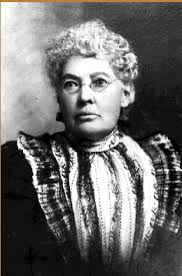
Throughout history teachers have been at the forefront of all civilizations, educating and inspiring the next generation and keeping societies moving forward. Frontier Teachers captures that pioneering, resilient, and enduring spirit of teachers that lives on today.
On a bright, sunshiny day in mid July 1859, a dusty, travel-worn, weary schoolteacher named Hannah Clapp trudged into Salt Lake City, Utah. Dressed in a calico blouse and bloomers made of thick, canvas-type material and carrying a pistol, the thirty-five-year-old woman drew stares from the settlers, prospectors, and trappers milling about the main thoroughfare. Hannah made the trip from Michigan with her brother, Nathan, his wife and children, and a handful of other pioneers. The trip across the rough continent had been fraught with peril. The small wagon train had endured disease, starvation, inclement weather, and towering mountains, and had more of the same to look forward to before they would reach California.
Many emigrants were coaxed west by their desire for gold. Hannah was driven by a desire to bring formal education to frontier towns. An unattached female making the journey over the plains was an unconventional as Hannah’s manner of dress. She was not affected by the attention her nonconformist behavior attracted. She was armed and ready to take on anyone who might physically challenge her style or dream of going to California to teach.
To learn more about Hannah Clapp, the schools teachers like her established, and about the other brave educators in an untamed new country read
Frontier Teachers: Stories of Heroic Women of the Old West.
This Day…
The Orphans’ Teacher
Enter to win a copy of the book
Frontier Teachers: Stories of Heroic Women of the Old West.
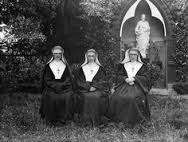
Throughout history teachers have been at the forefront of all civilizations, educating and inspiring the next generation and keeping societies moving forward. Frontier Teachers captures that pioneering, resilient, and enduring spirit of teachers that lives on today.
Sister Mary Baptist Russell and four other nuns from the Sisters of Mercy Convent weaved their way around a parade of scruffy miners, traveling salesmen, and saloon girls crowded on a sturdy dock that was hugging a shore in San Francisco. Wearing black habits complete with scapulars, veils, and coifs, the women stepped aboard the steamer that was splattered with mud and dirt. The deck of the vessel was aswarm with prospectors en route to their diggings down river. Some were sleeping, others were playing cards or discussing their mining claims. The sisters inched their way to a clear spot near the bow and grabbed hold of the railing as the small craft moved slowly away from the landing.
The scene around the bay in August 1863 was chaotic. News of the discovery of gold north of the city had prompted people of every kind and description to pour into the place to gather supplies before rushing to the hills. Men, women, and children were living in shacks, or sleeping on the ground under blankets draped over poles. The noise and pandemonium lessened considerably as the boat continued on past abandoned ships, old square-riggers, and new vessels anchored and waiting patiently for more eager passengers to come aboard.
To learn more about Sister Mary Russell, the Sisters of Mercy, and the school they founded in 1863, and about the other brave educators in an untamed new country read Frontier Teachers: Stories of Heroic Women of the Old West.
This Day…
The Oregon Teacher – Mary Gray McLench
Enter to win a copy of the book
Frontier Teachers: Stories of Heroic Women of the Old West.
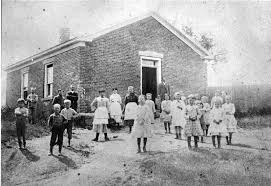
Throughout history teachers have been at the forefront of all civilizations, educating and inspiring the next generation and keeping societies moving forward. Frontier Teachers captures that pioneering, resilient, and enduring spirit of teachers that lives on today.
On March 22, 1851, the steamship the Empire City arrived at the Isthmus of Panama. The sun was hanging low behind a bank of clouds, and the busy seaport lay in purplish twilight. Five ambitious school teachers stood on the deck of the vessel watching the crewmen weigh anchor. Elizabeth Miller, Sarah Smith, Elizabeth Lincoln, Margaret Woods, and Mary Gray were wide-eyed by the feverish activity. A crowd of hundreds blackened the pier in the middle distance. The curious bystanders were like ants on a jelly sandwich. Cannons, firing from the ship’s bows to alert the harbor master that the Empire City was safely moored, rattled Mary, but a word from a deck-mate assuring her that it was routine procedure helped calm her down.
Like the other educators on board, Mary had never encountered anything quite as grand and foreign. Having been born and raised in the Green Mountains of southern Vermont, her experiences were limited to the family farm and a nearby town. At the age of twenty-five she consented to the journey to the Wild West to develop schools and teach in remote areas of the frontier. Mary Almira Gray had already been teaching students to read and write at a one-room schoolhouse in the village of Grafton, not far from her home. As the oldest of four children, she naturally took to helping her siblings to learn, and when she was old enough, she decided to parlay her talent into a profession.
To learn more about Mary Gray McLench and the school she founded in 1863, and about the other brave educators in an untamed new country read
Frontier Teachers: Stories of Heroic Women of the Old West.
This Day…
The Philosopher’s Teacher
Take a chance and enter to win a copy of the book
Frontier Teachers: Stories of Heroic Women of the Old West.
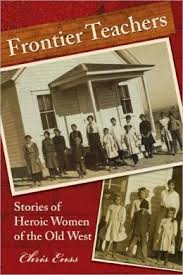
Throughout history teachers have been at the forefront of all civilizations, educating and inspiring the next generation and keeping societies moving forward. Frontier Teachers captures that pioneering, resilient, and enduring spirit of teachers that lives on today.
The long shadows of a beleaguered wagon train stretched across the Carson River Route, a parched trail through Nevada. Pioneers traveling west used this unavoidable route to get to California. The long, dry crossing was one of the most dreaded ordeals of the entire emigrant experience. The sources of fresh, drinkable water were forty miles apart from one another. Thirty-year-old Sarah Royce had read about the desolate section of land in the fragments of a guide book she’d found while on the journey to the Gold Country in 1849. By the time many of the sojourners had reached this part of the trek their wagons and livestock weren’t fit to continue.
Sarah, her husband, and their two-year-old daughter, Mary, stared in amazement at the abandoned vehicles and carcasses of ox and mule teams lying about. It seemed to the weary couple that they could walk over the remains of the animals for the duration of the trip and never touch the ground. The grim markers were nothing Sarah envisioned she would see when she embarked on the six-month venture. Having left her home in Iowa to follow the hordes of other pilgrims hoping to find gold, she set her sights on a serene and profitable life in a country depicted as a utopia. The expedition had proved to be more difficult than she had expected.
To learn more about Eliza Mott and the school she founded in 1863, and about the other brave educators in an untamed new country read
Frontier Teachers: Stories of Heroic Women of the Old West.
This Day…
The Carson Valley Teacher
It’s time to enter to win a copy of the book
Frontier Teachers: Stories of Heroic Women of the Old West.
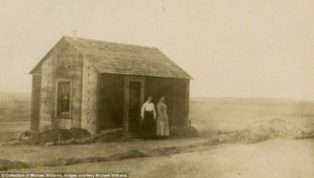
Throughout history teachers have been at the forefront of all civilizations, educating and inspiring the next generation and keeping societies moving forward. Frontier Teachers captures that pioneering, resilient, and enduring spirit of teachers that lives on today.
A precious, wide-eyed seven-year-old boy studied a sample of the alphabet in front of him and tried to copy the material onto a small slate with a broken piece of chalk. His teacher, Mrs. Eliza Mott, stood over his shoulder, kindly guiding him through the work and praising him for his effort. A handful of other youngsters reviewed the letters and practiced writing them out with pencil stubs on scraps of paper. Eliza’s kitchen served as a classroom, and students sat on bare logs around a crude, wooden table – some enjoying the learning process; others cursing the day school was created.
The Carson Valley area where Eliza and her husband, Israel settled in 1851 needed a place where children could learn the three R’s. In early 1852, the Motts offered their home as a temporary school; and, armed with a pair of McGuffey Readers, Eliza began teaching. Monday through Friday she welcomed boys and girls dressed in plaid, gingham dresses, home-knit stockings, tan trousers and over-shirts, who were either barefoot or wearing rough shoes with hard leather soles. The class ranged in age from five to eleven years. It toiled over a variety of subjects, sharing the limited books on spelling and arithmetic. On a few occasions, Eliza escorted the children to the small cemetery to read the epitaphs on the tombstones. It served not only to aid the students in learning to read but instilled a sense of reverence for those who had passed away helping to tame the wild territory.
To learn more about Eliza Mott and the school she founded in 1863, and about the other brave educators in an untamed new country read
Frontier Teachers: Stories of Heroic Women of the Old West.

